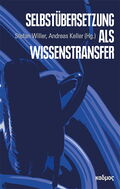Translations in the Transfer of Knowledge
The project’s focus in its first phase (2014-2016) concentrated on how knowledge was circulated in the early modern period through linguistic, medial, and cultural transfers, specifically, the relevance of translation as part of the historical division of Europe into domestic speech communities (nations) starting around 1400. In spite of the domination of Latin as the language of science and learnedness, translations increasingly became a driving force in the tense dynamic between other languages. A study of these translations provided a contrasting accent to current questions concerning scholarly polyglottism. In this vein, certain analogous relationships became apparent, for example, the ways in which an orientation around a single, leading language (Latin or English) can lead to diglossia as well as the reduced importance of learned and academic authorship (collective, anonymous, serial writing as well as writing not sanctioned by law). The comparative perspective, which took into account the situations before and after the era of nationally connoted monolingualism, thus aimed at elucidating today’s problems and challenges pertaining to academic multilingualism.
A complete description of the project phase 2014-2016 is available online in German.
Publications
Selbstübersetzung als Wissenstransfer
Events
Andreas Keller: ›Weltliteratur‹ in der Frühen Neuzeit: seriöse Untersuchungskategorie oder wohlfeile Rückprojektion eines epochenfremden Begriffs?
Department Germanistik und Komparatistik, Friedrich-Alexander-Universität Erlangen-Nürnberg, Bismarckstraße 1, 91054 Erlangen
Andreas Keller: »Übersetzungspoetik« statt »Übersetzungsfabrik«. Zur Frage eines ›schöpferischen‹ Transfers antiker Vorlagen bei Johann Gottfried Herder und Johann Jakob Hottinger
FRIAS Freiburg, Albertstr. 19, 79104 Freiburg
Andreas Keller: Renaissance Nymphs as Go-Betweens in Religious, Territorial and Political Areas of Tension
Cluster of Excellence Religion and Politics, Johannisstr. 1, 48143 Münster, Hörsaalgebäude
Andreas Keller: Ingenuity in Early Modern German
University of Cambridge
Self-Translation as Transfer of Knowledge
ZfL, Schützenstr. 18, 10117 Berlin, 3. Et., Trajekte-Tagungsraum
